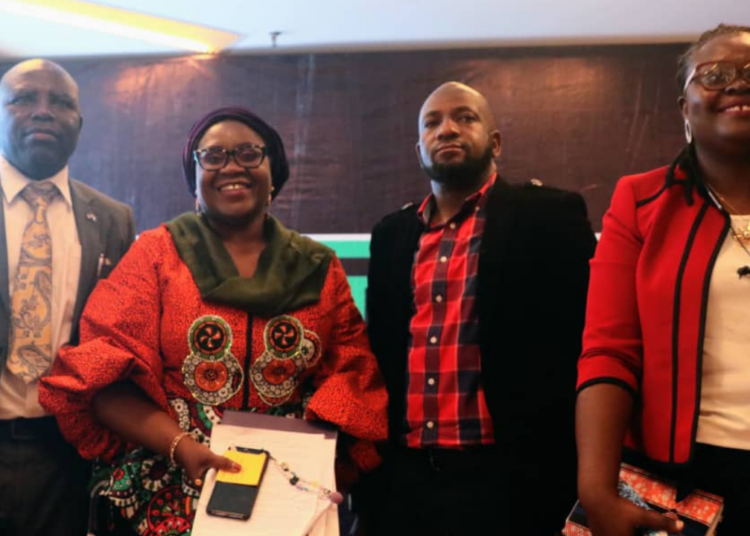Utilising data analytics and technology have been identified as crucial in locating missing children and assisting vulnerable individuals by collecting and analysing relevant information, such as location data, social media activity, and patterns of movement, which authorities, private organizations and civil society organisations (CSOs) can leveraged for search efforts, generate leads, and enhance outreach to those in need in order to achieve Universal Health Coverage (UHC).
Consequently, the Center for Integrated Health Programs (CIHP) has organised the third Scientific Roundtable series with the theme: “Time to Act, Using the power of data to reach missing children, young people and the most vulnerable towards attaining Universal Health Coverage”.
In her opening remarks, the Chief Executive Officer (CEO) CIHP, Dr. Bolanle Oyeledun, said the significance and objective of the 3rd Scientific Roundtable Series conference was to give voice to children and use data to help improve the health outcome of children and the vulnerable people in Nigeria.
“CIHP has successfully placed most HIV positive adults on treatment, but most children are left behind, however, CIHP has not been successful in finding children and putting them on treatment,” she noted.
She further stated that CIHP, since its inception in 2005 in Nigeria, has worked in over 10 States implementing interventions to primary healthcare, HIV/AIDS patients, group antenatal and immunization focus program reaching out to over 1.2 million pregnant women to identify who are HIV positive, and has found about 30,000 HIV positive pregnant women in Nigeria and placed them on treatment with their children in order to prevent child-maternal transmission of the virus.
In order to address the data gap in Nigeria, she stated that CIHP was very keen on data management, while also working closely with the University of South Carolina with a Smart Center for Quality Care and Data Center in gathering data for the vulnerable people in Nigeria.
According to her, CIHP pioneers the development of open Nigeria Medical Record System (NMRS) for gathering data for HIV/AIDS patients’ treatment and the platform has expanded to other parameters of health to include Antenatal Care (ANC), Neonatal Information and Immunization Focus Program to complement the District Health Information System (DHIS 2) that the government is running as patients level database, which can be used to access easily who they are looking for, where they are, then jointly work with the local community to develop interventions on how to reach out to them.
“This conference brings together lots of stakeholders and experts who have the technical expertise to use data science to help improve the healthcare delivery of children particularly those living with HIV/AIDS in Nigeria,” she added.
Speaking in an interview with journalists on the role of big data and artificial intelligence (AI) in healthcare, Associate Prof, Co-director Big Data Health Science Center, University of South Carolina, Dr. Banky Olatosi, noted that data has been collected every now and then in a very large amount either on our smartphones or via the internet, hence all of the data has intelligence hiding in them.
According to him, from the pattern of one’s behaviour with the healthcare data, he can predict where one can go for healthcare, what disease can affect one in the future, and can one help prepare resources that can take care of the patient in the future from gathering data information.
He further said that the whole idea of Artificial Intelligence (AI) in healthcare was to achieve “Personalised Medicine”, where every individual has a unique genetic makeup, when the data is captured and centralised on the individual, AI can then give doses that is based on the individual’s weight, genetic makeup and ethnicity.
On the issue of Nigeria owning a centralised database, Dr Olatosi urged Nigerians to start thinking about it from a different context, noting that it is almost impossible to have a centralised database for healthcare, but advised that a linkable database system is what works even in the advanced world.
“Every individual should have a unique identifier number—social security number—that can be linked to a database. The future of healthcare is personalized medicine, that is what AI brings and AI solely depends on good data to achieve the desired results,” he said.
For her part, discussing the new PrEp technology, the use of long-acting injectables and dapivirine rings, Dr. Sharon Weissman, Professor of Clinical Medicine, School of Medicine, University of South Carolina, mentioned the future of long acting injectables to include, Long acting, HIV capsid inhibitor, also inhibits nuclear transport and virus assembly, treatment and prevention of HIV; PK studies support every 6 months SC dosing; very potent, 2 log viral reduction; multidrug resistance treatment trial.
She also stated that the World Health Organization (WHO) recommended dapivirine Vaginal rings as a PrEp option for women, adding that it can be inserted in the vagina once a month (28 days).
The highlight of the event was the presentation of performance recognition awards to some individuals, institutions and companies from Gombe State as the first State to start owning their data collection process for the vulnerable people in the State.





